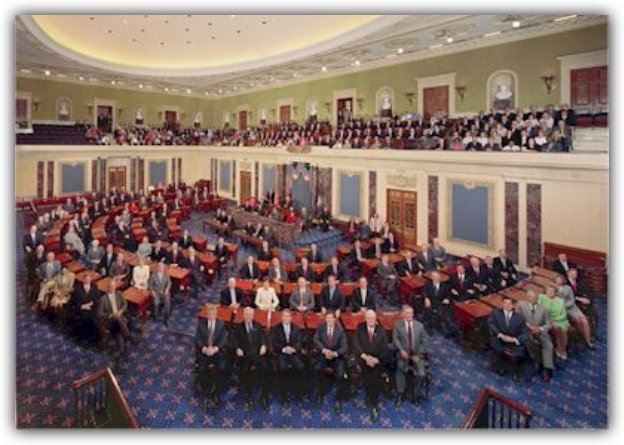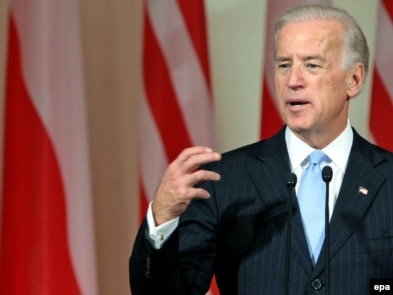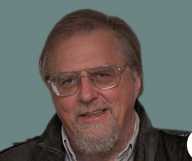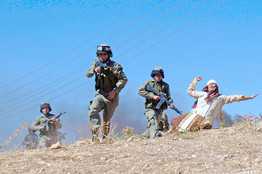As Genocide Continues to Shape World History, Landmark Conference will Seek Answers and Understanding
International Group of Scholars Gather to Focus Lens on Genocide through examination of Raphael Lemkin, Advocate and Initiator of United Nations Genocide Convention in 1948
Wed Oct 21, 2009 8:30am EDT
NEW YORK, Oct. 21 /PRNewswire/ — Current news headlines are a sad reminder
that genocide has been, and continues to be, a stain on human existence in all
corners of the world, from Rwanda to Armenia, to Darfur and beyond. Those
headlines also underscore the urgency of addressing every instance of the
crime, particularly in light of a statement made by Adolf Hitler before
invading Poland in 1939: “… I put ready my Death’s Head units, with orders
to send to death, mercilessly and without compassion, all men, women, and
children of the Polish race or language. … Who, after all, still talks
nowadays of the extermination of the Armenians?”
Inscribed on the wall of the Holocaust Museum in Washington, D.C., that quote
illustrates that Hitler was emboldened by the lack of international response
to Turkey’s killing of more than a million ethnic Armenians during World War
I. By contrast, however, that episode in human history was also the spark that
led to the tireless efforts of one man to define the crime of genocide under
international law and enable perpetrators, such as a recently arrested suspect
in the Rwandan genocide, to be charged and brought to justice. That man was
Raphael Lemkin, whose life-long devotion to the cause not only coined and
defined the word “genocide,” but led to the 1948 United Nations Convention on
the Prevention and Punishment of the Crime of Genocide.
The invaluable contributions of Lemkin will be the focus of an international
public conference, “Genocide and Human Experience: Raphael Lemkin’s Thought
and Vision,” to be held Sunday, November 15, from 9:00 a.m.-6:30 p.m., at the
Center for Jewish History, 15 West 16th Street in New York City. Bringing
together for the first time an international group of historians, political
scientists, anthropologists, philosophers, philanthropists, and legal
authorities to explore the tremendous legacy and impact of Lemkin’s work, the
landmark conference will also delve into perpetually relevant questions of
human rights and the nature of human behavior.
“Raphael Lemkin died in 1959, and while few people today may recognize his
name, most feel the impact of his work,” said Michael Glickman, Center for
Jewish History COO. “As a young Jewish lawyer in Warsaw almost 90 years ago,
Lemkin could not understand why it was a crime for an Armenian youth to murder
the Turkish official responsible for the attempted destruction of the Armenian
community in the Ottoman Empire, but not a crime for the government to murder
more than a million Armenians. That question inspired Lemkin to devote the
rest of his life to fight against such horrors and to wage a campaign of
international advocacy that led to the United Nations Genocide Convention.”
A wealth of Lemkin’s correspondence, along with papers documenting Lemkin’s
work as an activist, are housed in the archives of the American Jewish
Historical Society at the Center for Jewish History. The documents include
correspondences with public figures such as Eleanor Roosevelt, General Dwight
D. Eisenhower, and Pearl S. Buck; Lemkin’s unfinished manuscript History of
Genocide; and archival footage of interviews from the 1950s. The Lemkin
archives will also be the subject of a special exhibition at the Center for
Jewish History in partnership with Yeshiva University Museum scheduled to run
from November 16, 2009, to March 19, 2010.
Even though the crime of genocide is often understood as mass murder alone,
Lemkin viewed genocide as a nuanced concept, which shapes and is determined by
the spheres of economics, law, society, and culture. Through Lemkin’s archival
writings, the conference will focus on these gradations of genocide, as Lemkin
understood them.
Opening the conference will be an historical overview and brief biographical
account of Lemkin’s life, legal and other accomplishments, and perspectives on
the human condition, setting the context for the panel discussions to follow.
Topics to be explored by three different panels fall under the broad subjects
of Lemkin’s perspective on cultural genocide, the complex economic and social
issues surrounding genocide, and the challenging relationship between
international law and genocide.
Among the distinguished list of presenters are Vartan Gregorian, President,
Carnegie Corporation of New York; Peter Balakian, Colgate College; Donna-Lee
Frieze, Deakin University, Melbourne, Australia; Alexander Laban Hinton,
Rutgers University; Jim Fussell, PreventGenocide.org; Tanya Elder, American
Jewish Historical Society; Berel Lang, Wesleyan University; Benjamin
Valentino, Dartmouth College; Lawrence Woocher, US Institute of Peace; Hilary
Earl, Nipissing University, North Bay, Ontario; Benedict F. Kiernan, Yale
University; Muhamed Mesic, Bosnia; William A. Schabas, National University of
Ireland; and Steven Leonard Jacobs, University of Alabama.
“It is the hope of the Center and the conference sponsors that this historic
gathering will not only provide some clearer understandings of both the
extraordinary courage and dynamic intellect of one individual, but will also
clarify the challenges that lie ahead in confronting the evil of genocide in
the modern world,” continued Mr. Glickman. “It is said that those who do not
learn from history are doomed to repeat it. ‘Genocide and Human Experience:
Raphael Lemkin’s Thought and Vision’ represents one small step to teach the
lessons humankind so desperately needs, as history continues to repeat itself
in the 21st century.”
The conference is open to the general public. For more information, visit
www.cjh.org/lemkin; or to register, log on to www.smarttix.com or call
212-868-4444.
SOURCE Center for Jewish History
Cathy Callegari, +1-212-579-1370, [email protected]
URL:




 Armenian President Serzh Sarkisian and Tina Kaidanow, U.S. deputy assistant secretary of state for European and Eurasian affairs, meet in Yerevan.
Armenian President Serzh Sarkisian and Tina Kaidanow, U.S. deputy assistant secretary of state for European and Eurasian affairs, meet in Yerevan.
 U.S. Vice President Joe Biden talks to the press in Warsaw.
U.S. Vice President Joe Biden talks to the press in Warsaw.


